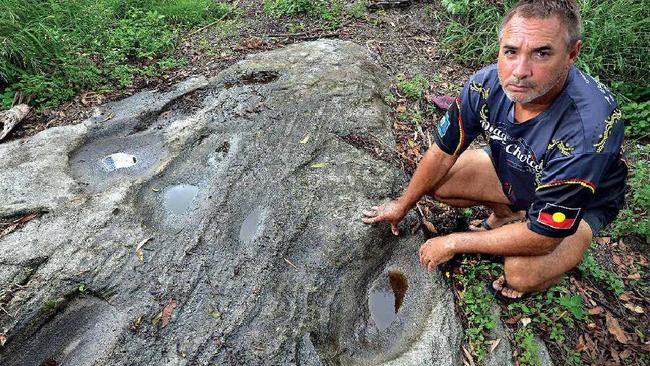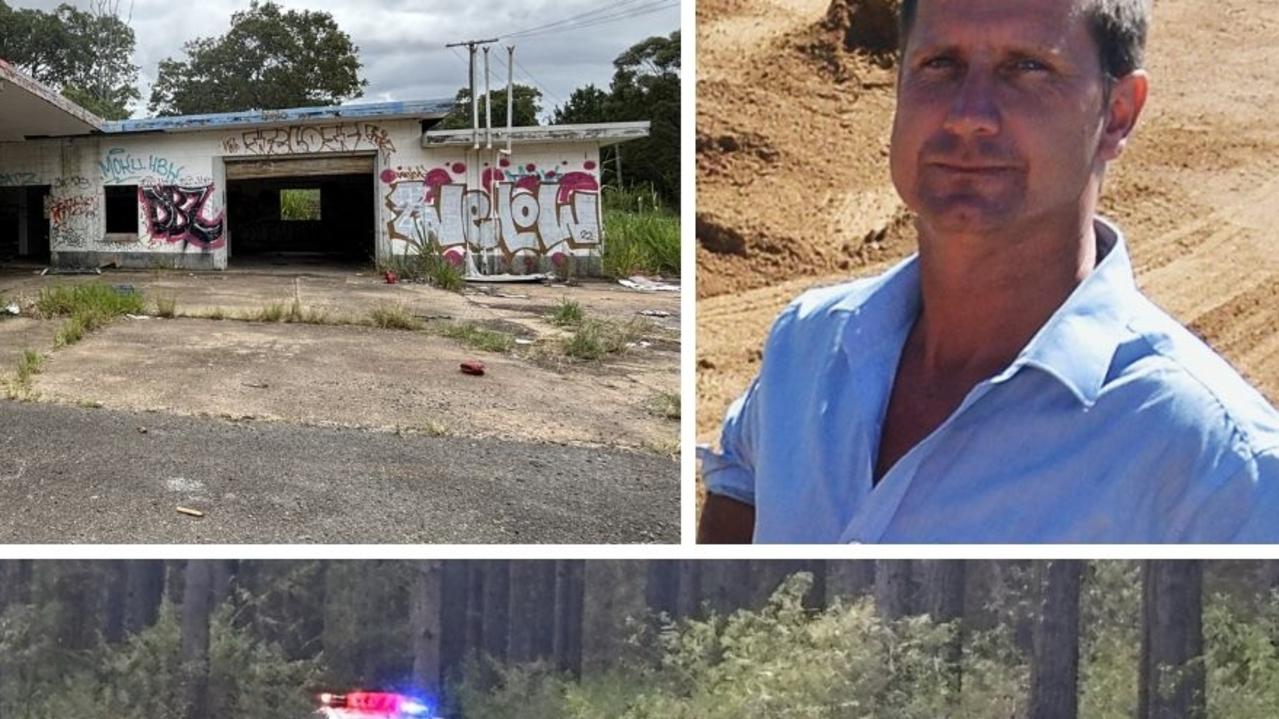'Gympie Pyramid' sparks Aboriginal land rights claim
AN ABORIGINAL land rights claim over the so-called “Gympie Pyramid” has put a potential legal road block in the way of plans for the Bruce Hwy’s Gympie bypass.

Gympie
Don't miss out on the headlines from Gympie. Followed categories will be added to My News.
AN ABORIGINAL land rights claim over the so-called "Gympie Pyramid" has put a potential legal road block in the way of plans for the Bruce Hwy's Gympie bypass.
Also known as Rocky Ridge, the area is noted for evidence of human habitation.
Kabi Kabi activist Wit-booker, says plans to bulldoze the area for a new Bruce Hwy breach international conventions on cultural genocide.
He says artefacts on the site, including grinding stones, are the work of his ancestors and show a strong and recurring Aboriginal identification with the site.
GYMPIE Pyramid artefacts, attributed by some to ancient Egyptians or unrecorded Chinese or Italian settlers, are really highly significant Aboriginal artefacts, Kabi Kabi activist Wit-booka said yesterday.
Also known as Southside resident Gary Tomlinson, he says he has taken back his Aboriginal identity and says the land at Rocky Ridge shows important signs of Aboriginal land management denied by people who wish to portray his people as primitive.
The area and its artefacts are vital to the wellbeing of his people and the preservation of their culture, he said.
Rocks in the hillside show indentations which he says have been worn into the solid stone by centuries of use for grinding grass and other seed grains to make the original damper.
He says he is determined to stop the "cultural genocide" which has hurt Gympie region's Aboriginal people.
"After 200 years, we have nothing," he said.
Charged with trespassing and obstructing police over an incident at another claimed sacred site at Belli Park, Mr Booker says the charges against him were discontinued.
The site was a traditional gathering site for the Bunya nut festivities, held in hinterland areas when the nuts of the Bunya Pine were in season.
He says one elder in his group was refused permission to use a toilet and told to "go in the bush" while guards made videos on their mobile phones.
"We're only following the law," he said yesterday. "The government's not."
He and his supporters claim the authority of international law on the treatment of indigenous peoples and say too many Australians seem to think those laws and treaties only apply to other countries.
He also quotes 19th Century British colonial law, specifically the Pacific Islanders Protection Act of 1875, which refers to the "Australasian colonies" and guarantees the sovereign rights of indigenous people.
More recently came the United Nations Convention on the Prevention and Punishment of the Crime of Genocide, adopted in 1948 as part of the human rights guarantees following on from the Allied victory over Nazism and related philosophies.
It led to Australia's Genocide Convention Act of 1949 which outlawed genocide in Australia and included in its definition "causing mental harm to members of the group, inflicting conditions of life calculated to bring about its physical destruction, or forcibly transferring children of the group to another group." Wit-booka says he is campaigning to preserve Kabi Kabi culture, including preventing the state government from bulldozing an area he says is a sacred site.


